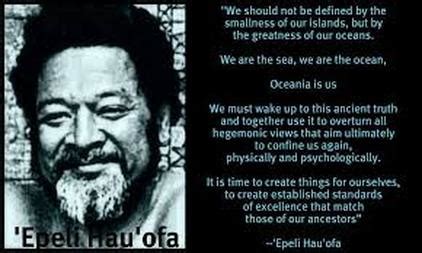A Quote by Miriam Makeba
In the West the past is like a dead animal. It is a carcass picked at by the flies that call themselves historians and biographers. But in my culture the past lives. My people feel this way in part because death does not separate us from our ancestors.
Related Quotes
The Past is dead, and has no resurrection; but the Future is endowed with such a life, that it lives to us even in anticipation. The Past is, in many things, the foe of mankind; the Future is, in all things, our friend. In the Past is no hope; The Future is both hope and fruition. The Past is the text-book of tyrants; the Future is the Bible of the Free. Those who are solely governed by the Past stand like Lot's wife, crystallized in the act of looking backward, and forever incapable of looking before.
But the past does not exist independently from the present. Indeed, the past is only past because there is a present, just as I can point to something over there only because I am here. But nothing is inherently over there or here. In that sense, the past has no content. The past - or more accurately, pastness - is a position. Thus, in no way can we identify the past as past
And there is also the paradox that the dominating culture imbues the Indian past with great meaning and significance; it is valued more because it is seen as part of the past. And it is the romantic past, not the present, that holds meaning and spiritual significance for so many members of the dominating culture. It has seemed so strange to me that the larger culture, with its own absence of spirit and lack of attachment for the land, respects these very things about Indian traditions, without adopting those respected ways themselves.
Psychoanalysis is often about turning our ghosts into ancestors, even for patients who have not lost loved ones to death. We are often haunted by important relationships from the past that influence us unconsciously in the present. As we work them through, they go from haunting us to becoming simply part of our history. (243)
I think it's hard sometimes for people to grapple with the real-life consequences of political change. I think that, we as a culture, feel like politics is one sector of our lives that can feel apart from our personal lives and the cultural things we're interested in and the sports we watch. It feels like this separate, different thing.
Our American past always speaks to us with two voices: the voice of the past, and the voice of the present. We are always asking two quite different questions. Historians reading the words of John Winthrop usually ask, What did they mean to him? Citizens ask, What do they mean to us? Historians are trained to seek the original meaning; all of us want to know the present meaning.
Because you are obsessed with the idea of past, present, and future, you are forced to think of reincarnations as strung out one before the other. Indeed we speak of past lives because you are used to the time sequence concept... You have dominant egos, all part of an inner identity, dominant in various existences. But the separate existences exist simultaneously. Only the egos involved make the time distinction... a thousand years in your past or in your future - all exist now.
An important part of building a new culture was allowing people to complain about their past. At first, the more they complained, the worse the past would seem. But by venting, people could start to resolve the past. By bitching and bitching and bitching, they could exhaust the drama of their own horror stories. Grow bored. Only then could they accept a new story for their lives. Move forward.
That the past is ahead, in front of us, is a conception of time that helps us retain our memories and to be aware of its presents. What is behind us [the future] cannot be seen and is liable to be forgotten readily. What is ahead of us [the past] cannot be forgotten so readily or ignored, for it is in front of our minds' eyes, always reminding us of its presence. The past is alive in us, so in more than a metaphorical sense the dead are alive - we are our history.




































